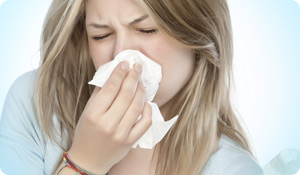
Being exposed to germs could actually have a positive effect on your immune system. The latest research shows that coming into contact with some infections may be necessary in order to prevent allergic asthma—a word of warning: Don't go out seeking germy places to frequent just yet!
Research on Bacteria and Asthma
Scientists from the University of Zurich and the University Medical Center of the Johannes Gutenberg University Mainz recently took a close look at this issue and their findings reinforced a common belief that excessive hygiene in modern day life has reduced exposure to germs that are needed to keep the immune system functioning properly.
One such germ is a gastric bacterium called Helicobacter pylori. The researchers believe that exposure to this specific bacterium in the past offered protection against allergic asthma. But with more people taking antibiotics and eliminating the presence of this bacterium, this may have led to increases in allergy-triggered respiratory symptoms that could otherwise have been prevented.
To come to this conclusion, the scientists infected a group of mice with gastric bacterium within their first few days of life. They found that the mice exposed to the infection early on built up a tolerance to it and also had little or no asthma response to allergy triggers. The scientists also infected a control group of mice with the same germ but in this case, waited until they were in adulthood. The older group didn't develop the same immunity to the germ, or to the asthma-producing allergens.
In additional tests, scientists tried transferring T-cells that regulate the immune system response from the mice who were infected with the bacteria early on to those who were not. With this change, the control group of mice demonstrated improved protection against the germ and against asthma just as the first group had. Then the scientists also tried treating the bacteria with antibiotics, which killed off the infection and also weakened the body's protection from it. Without the infection, the mice were no longer protected against asthma.
Understanding What Causes Asthma
These findings, which were published in the Journal of Clinical Investigation in September 2011, are significant because they reinforce the idea that a growing reliance on antibiotics and an increase in germ-avoidance efforts can be to blame for rising asthma rates in recent years. While no one wants to make people ill unnecessarily, the hope is that a better understanding of what causes asthma will help scientists develop more effective prevention and treatment options.
What This Means for You
Of course these findings shouldn't serve as a call for you to expose yourself to germs unnecessarily. Remember that when asthmatics get sick, they can put themselves at increased risk for a flare-up and other complications. Therefore, it's essential that you take good care of yourself and follow the Centers for Disease Control (CDC) guidelines, which recommend thoroughly washing your hands in hot water regularly to prevent the spread of illnesses.
In the future, the medical community could continue to gain a clearer picture of how the immune system works, which can likely lead to exciting new ways to prevent and treat allergic asthma. But in the meantime, steer clear of germy places and rely on your doctor and your asthma action plan to help you to stay as healthy as you can.
Sources:
Arnold, Isabelle C. et al. "Helicobacter Pylori Infection Prevents Allergic Asthma in Mouse Models through the Induction of Regulatory T-Cells." Journal of Clinical Investigation, 121 (8). Web. 18 Sept. 2011.
"Gastric Bacterium Helicobacter Pylori Protects Against Asthma." Eurekalert.org, 1 July 2011. Web. 18 Sept. 2011.
"Science News: Gastric Bacterium Helicobacter Pylori Protects Against Asthma." Science Daily. Sciencedaily.com, 5 July 2011. Web. 18 Sept. 2011.





